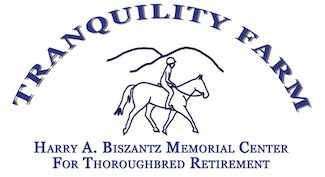By Erin Spry – Del Mar Times
The career of a racehorse is as hard and fast as the competitions they sprint in. By the time a horse’s age climbs to the double digits, its peak racing years are in the past. But these born-to-run athletes, with 20 or so years left to catch their breath, are far from purposeless.
Equine retirement facilities take these horses in and help determine what’s next for them. Some need to be rehabilitated after an injury. Some can be used to compete in other equestrian events, like hunter/jumper or dressage. And some can look forward to retiring for good, spending their days in a grassy pasture and aging in style.
“It doesn’t get any better than that,” said Priscilla Clark, president of Tranquility Farm. “Walking around and nibbling grass … for horses, it’s a good deal.”
Tranquility Farm, based in Tehachapi, houses about 100 horses, 50 of which are permanent retirees whose only job is to settle in and be content. Clark just lost one of her longest residents, former stakes winner Fortunate Betty, at the ripe old age of 32.
With all incoming horses, said Clark, the biggest challenge is to psychologically and physically calm them down after they’ve spent so many keyed up years on the track.
“My job is to get them from the prancing, dancing, tense and on edge to the quiet eyes, cruising around, taking life as they find it,” said Clark.
“I call it buttering them up. I get them real fat and happy.”
The horses that come to these facilities are either injured or no longer make a good racer. But many of these horses are only 3 to 4 years old, and still have plenty of get-up-and-go.
These particular horses are reconditioned to provide other equine services. Each non-profit retirement facility operates through an adoption program, and there’s no shortage of available horses. According to Clark, Tranquility Farm takes in about 25 new horses a year and places the same number, leaving about a quarter of her available horses waiting for adoption.
Most adopted horses go into show riding, and a few go into trail riding.
A lot of work goes into the time between when horses come in and when they’re adopted. Horses have to be physically and mentally ready to go to their new owners, and a lot of them can be “hard cases,” according to Clark. The whole reorientation process can take up to a year.
But when these horses are officially retired, injured or not, they won’t be hitting the track again. When they’re done, they’re done, according to Grace Belcuore of the California Equine Foundation in Winchester.
“There’s no way I would allow them to go back into racing,” said Belcuore, who houses about 50 to 70 horses.
For the last decade, the Del Mar Thoroughbred Club has supported three equine retirement facilities as part of their Charity Days: Tranquility Farm, California Equine Foundation and the United Pegasus Foundation in Hemet. Since 1970, the Del Mar Thoroughbred Club has donated $6.5 million to racing-related charities.
Dan Smith, of the Del Mar Thoroughbred Club, considers the retirement facilities an important part of the sport. Smith, who also serves on California Equine Foundation’s board of directors, said racehorses could possibly be shipped off and/or euthanized at the end of their career if not for these ranches.
“I think the industry has to have a sense of responsibility towards these racehorses,” he said. “The alternative is chilling, the thought that a lot of wonderful thoroughbreds that gave enjoyment to many people suffer a terrible fate.”
Although these equine retirement homes are working ranches, they are open to the public by appointment. Each one is open seven days a week, and Clark welcomes everyone to come visit these stunning former athletes.
“They can come right up and pet the horse and feed them carrots,” said Clark. “It’s really pretty (at the farm), grass and trees and a lot of big smiling horses.”
Clark has a long history on the track, as a former horseshoer and exercise rider, and her husband is a trainer. Horses have always been a part of her life, and she considers all of the horses at Tranquility Farms members of her family. “I just think of them all as kind of like my kids.”
For Belcuore, who founded California Equine Foundation in 1986, caring for these accomplished athletes is a rewarding career.
“What they give back to me is immeasurable,” she said. “Their courage, their dignity, they’re magnificent animals. … Hopefully I have made their lives comfortable and safe and secure until they are no longer with us.”
For more information, visit www.dmtc.com.
